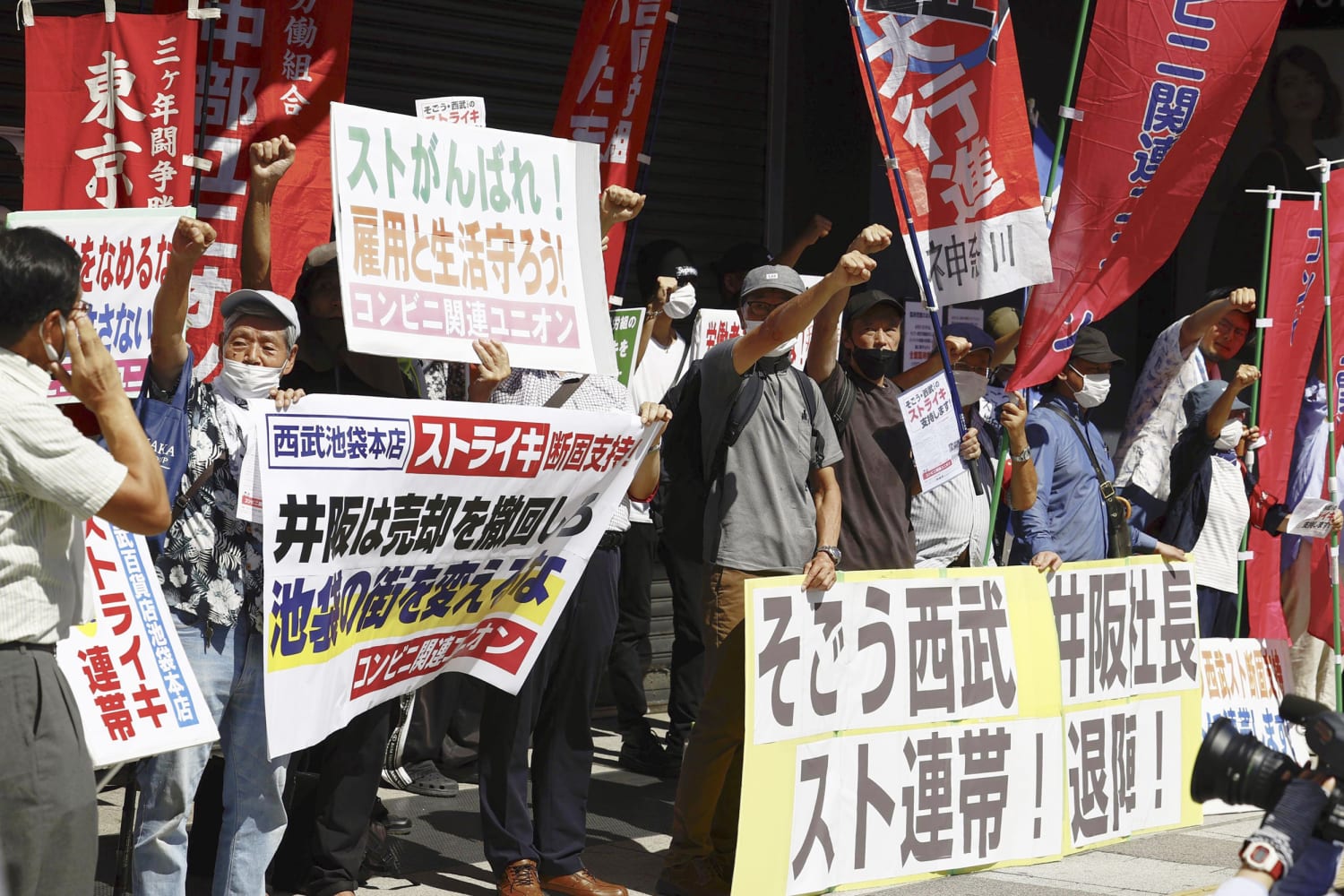[ad_1]

On Thursday morning, Seibu workers protested in front of the store in the summer heat while members of various other unions handed out flyers to show their support.
Seven & i apologized for the strike and said the subsidiary would continue to hold talks with the union. Other Seibu and Sogo department stores were open for business as usual.
Fortress and its partner in the deal, Yodobashi, were not immediately available for comment.
The strike comes amid an extremely tight labor market in Japan, where workers at major companies won the biggest wage increases in three decades at labor negotiations this spring. Those gains have, however, been eroded by inflation at a 41-year high, and wages in real terms have continued to fall.
Sogo & Seibu’s workers had the support of labor groups from rival department stores including Takashimaya and Isetan Mitsukoshi.
“I think many workers have gotten some encouragement from this case,” said Rikkyo University professor Wakana Shuto, who specializes in labor issues. “Considering the industry’s difficulties, the conditions at Sogo & Seibu are not unique.”
The Seibu Ikebukuro store is Japan’s third-largest department store by sales, according to media reports, but its owner Sogo & Seibu has been in the red for the last four years.
For overseas funds looking to restructure Japan Inc brands, the walk-out raises the specter of similar hurdles, said Tokyo-based corporate lawyer Stephen Givens.
“You can acquire a Japanese company, as a foreigner, through brute force, and it’s not going to do you any good if the people who are actually managing the Japanese company and working for the Japanese company aren’t happy with results,” he said.
“This is one of the caveat emptor things that all foreign would-be acquirers should keep in mind.”
[ad_2]
Source link
